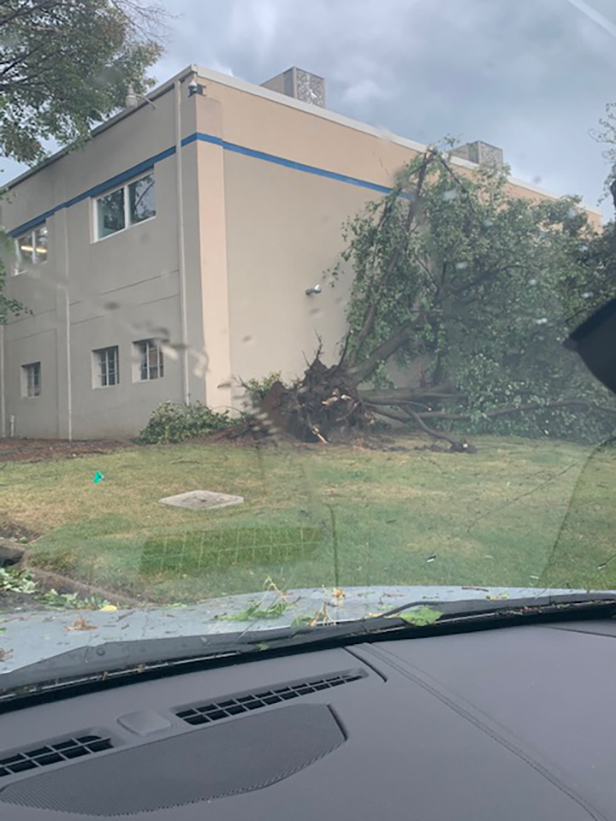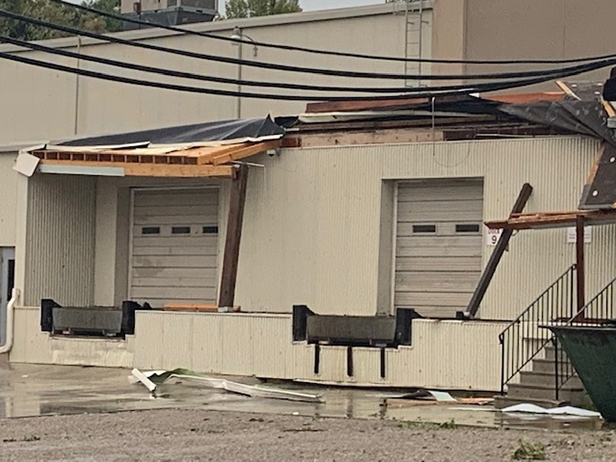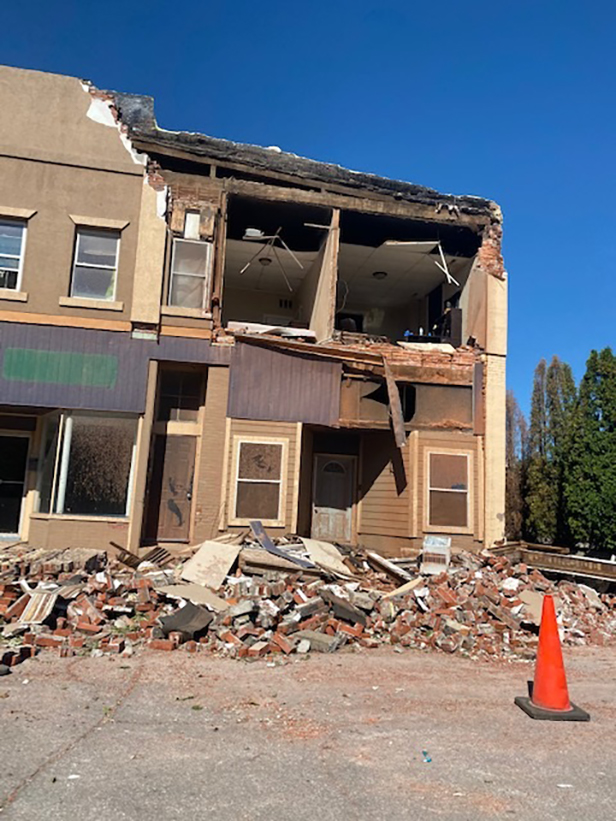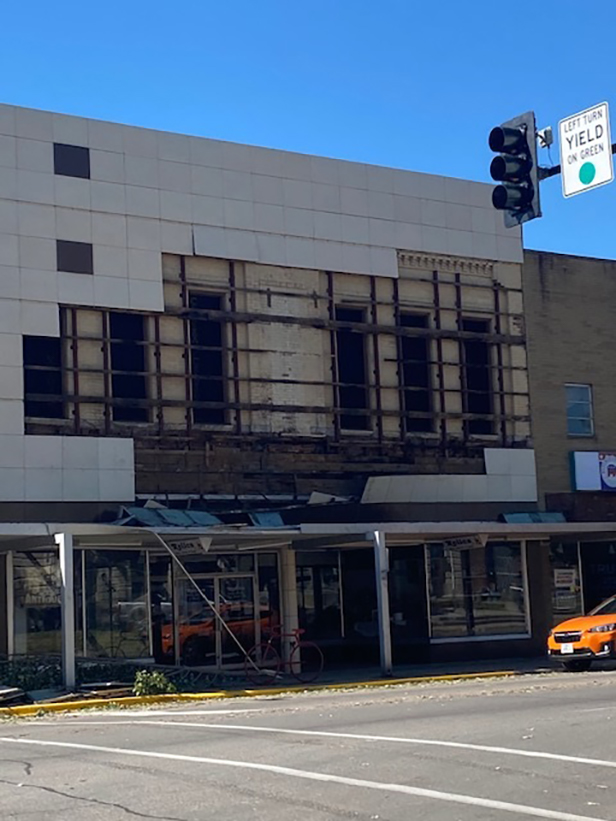News August 18, 2020
Rare, Devastating Storm Hits Iowa Promo Firms
The “derecho” knocked down trees and powerlines, severely damaged buildings and killed three people.
In just a few short minutes and with practically no warning, a severe storm with the power of a Category 2 hurricane blew through parts of eastern Iowa last week, leaving 200,000 people without power, more than 1,600 properties damaged and over 1,000 homes uninhabitable.
On Aug. 10, this rare natural event, called a derecho – a line of fast-moving, long-lasting, severe thunderstorms coupled with extremely strong winds – formed near Omaha and traveled 700 miles from Nebraska to Indiana, hitting Iowa particularly hard. Now, schools in the Hawkeye State are damaged just as students prepare for the start of the school year and millions of acres of cropland are destroyed, a devastating blow to the state’s economy.
More than 600,000 customers remained without power in the Midwest after the powerful derecho Monday. https://t.co/5qVlEF4ZYJ
— USA TODAY (@USATODAY) August 12, 2020
Three Iowans were killed in the storm: A woman in Malcom was hit by a tree that fell on her porch, an electrician for the city of Brooklyn was electrocuted by a downed power line he was working to repair and a man in Solon was hit by a tree while riding his bike.
The storm also impacted area promotional products firms; it’s yet another ordeal after months of dealing with shutdowns and lost business due to the pandemic. Des Moines, the state’s capital and home to 26 ASI-listed distributors and two suppliers, sustained significant damage to its usually tree-lined and well-kept residential streets. Mike Rodin, owner of IMPACT Promotional Marketing (asi/230181) in Des Moines, said he and his employees were at the office at 10:45 a.m. when the sky got so dark it looked like the middle of the night.
“The wind got so strong, it slammed the door back,” he said. “It came from the west, and our building faces that direction, so we moved to the back of the building and grabbed our promotional flashlights and lanterns. It was really scary while it was happening, for about 15 or 20 minutes.”
Rodin said the office was without power for 13 hours, which is a long time considering it’s located next door to MidAmerican Energy, and a neighbor to the south of the facility said the roof next to his was “dancing” as though it was going to blow away.
IMPACT provided golf balls, towels and a tent from Showdown Displays (asi/87188) for an event that same day at a nearby golf course. Golfers quickly took shelter as the winds picked up and threw the tent down the fairway, destroying it. “Showdown replaced the framework for free,” Rodin said. “They didn’t have to do that. They’re a great company to work with.”
Marty McDonald, president of McDonald Imaging Solutions (asi/522770) in West Des Moines, said trees came down on his residential property and he lost a few shingles, but it was minor compared to nearby areas. “It came out of nowhere,” he said. “We were without power for a couple days. Most of the trees have been sawed up into more manageable pieces for removal.”
Dan Svec, president of PyroGraphics (asi/80093), also in West Des Moines, said the facility was spared and power was restored the next day. Most employees were in the dark for a day or two, while Svec waited four days for restoration. “Our production schedule was set back a few days mainly due to the collective stress of dealing with yet another issue in a year full of challenges,” he said. “Our staff responded well, pitched in and did whatever was needed. We’re very proud of them.”
Compounding the challenges of a vast cleanup effort was the fact that many of the local utility company’s extra line crews and trucks were still out on the East Coast of the U.S. helping with power restoration in the wake of Tropical Storm Isaias. “That put extra strain on the recovery effort,” Svec said. “The cleanup will take a few weeks.”
Just 100 miles northeast of Des Moines, in Waterloo, IA, damage was much less severe. Jeff Swartzendruber, president of Image Pointe (asi/230081), said his company lost internet for two days, so employees used their personal hotspots. “Other than that, we’re good,” he said. “Our city was relatively untouched.” In Ames, 30 miles north of Des Moines, it was a similar situation at CFG Promos (asi/47963). “We didn’t suffer any damage to our building, although our power was out for 48 hours and a quarter of our employees were without power, so we lost productivity,” says vice president Sue Cunningham.
But it was a much different story in Cedar Rapids, located about 120 miles east of Des Moines, and home to 21 distributors and two suppliers. A week after the event, more than 30,000 people were still in the dark. UnityPoint Health’s St. Luke’s Hospital in Cedar Rapids reported seeing almost 250 patients in 24 hours immediately after the storm hit.
Pretty dire situation in Cedar Rapids, Iowa, home to 150,000 Americans. After the derecho unleashed 90-100+ mph winds there on Monday, still two-thirds of city without power. Most homes/businesses damaged. Trees/wires down everywhere. https://t.co/PeIM9PghFo
— Capital Weather Gang (@capitalweather) August 14, 2020
Kate Nash, director of marketing at Cedar Rapids-based Raining Rose (asi/80489), said operations are now back up and the facility fortunately experienced little damage, but workers are dealing with the aftermath.
“Many of our employees are still without power at their homes, and they’re still cleaning up their properties, finding new temporary housing and assessing damage,” she said. “Most city streets are passable now, but there are piles of debris on every curb. For the first few days after the storm, the majority of the city was without power, many roads were impassable, many businesses were closed and essentials like gas, ice and fresh food were really hard to come by.”
Just 6 miles northeast of Cedar Rapids is Marion, home to Eco Lips (asi/51599). “It was so terrible,” said Jane Merten, vice president of marketing. “We still have thousands of residents without power a week later. Our building sustained some damage, but we’ve been up and running since last Thursday. Tree drifts line every single street since residents and businesses have stacked limbs upon limbs for removal. The governor has requested $4 billion in federal aid, but I really don’t think that’s going to be enough.”
Newton, about 35 miles east of Des Moines, was also hard hit. Andrea Smith, industry relations and communications manager at Top 40 distributor The Vernon Company (asi/351700), said the local tornado sirens went off just before 11:20 a.m. on Monday, Aug. 10 and all employees immediately moved to the building’s basement shelter, where they remained for an hour. The power went out and generators came on about 25 minutes later. When it was deemed safe to emerge, all employees were sent home except the company’s executives, HR and maintenance staff who assessed the situation.

Employees at The Vernon Company took shelter in the building’s basement during the storm; this is what awaited them when they ventured outside an hour later. (Andrea Smith)

Vernon’s loading docks saw some damage from the strong winds. (Andrea Smith)
“Many trees were down as well as a power line on one side of the building, but we were lucky our facilities weren’t more badly damaged,” Smith said. “Power and internet were restored by Wednesday and we returned to work as usual on [Aug. 13].”
But employees sent home that day found a different situation awaiting them. Smith says 90% of their people live in and around Newton, and almost all of them had fallen trees and debris on their properties. Some even had tree limbs through roofs, missing siding and decks, broken windows and damage to their cars.
Thankfully, Vernon account executives in other parts of the country were able to keep orders moving through, while some of the Iowa staff relocated briefly to the company’s Missouri location to continue working. Those whose power was restored worked from home as they oversaw cleanup; the sound of chainsaws drones on a week later as trees are cleared and power lines repaired.

Businesses in downtown Newton suffered significant damage. (Andrea Smith)

Buildings lost roofs, shingles and windows as the storm cut a wide swath across the state. (Andrea Smith)
“Our local high school students have been volunteering with cleanup, since their first day, originally planned for next week, was pushed back to the second week in September due to damage to the school property,” Smith said. “The recovery process is slow both in town and for local farmers. We hope that Gov. Kim Reynolds’ request for federal assistance will be granted to give Iowans some relief.”
Only 20 miles southwest of Cedar Rapids is Amana, home to Jester Apparel (asi/234776). CEO John Martin said he and his employees are fine and that he lost a few shingles and pieces of siding, but it’s a huge area that’s been affected. “It’s bad and widespread,” he said. “We lost a lot of business to COVID and now this. I spent the past week picking up neighbors’ and family members’ yards. I’m a little guy in the industry, and I have a job at General Mills too, so I’ll be fine. I’m worried about the others.”
Martin said they experienced wind gusts close to 100 mph. Just a few miles north, winds reached 130 mph and took roofs with it.
“Farmers will probably lose the most money out of this,” he said. “The corn crop is pretty much destroyed for miles. We have power finally, but some won’t have it for another week. I saw damage like this before back when we had one of these storms in 1998, but it was a very narrow line. This one is so much bigger. People drove through multiple counties just to get gas.”
Farmers across a wide swath of Iowa are dealing with the aftermath of a rare wind storm that turned what was looking like a record corn crop into deep losses for many. https://t.co/7z54JEg7IF
— NBC News (@NBCNews) August 13, 2020
The U.S. Department of Agriculture estimates that more than 8 million acres of corn and over 5 million acres of soybeans were in the derecho’s path, across 57 counties. That’s about 43% of Iowa’s total corn and soybean crop, a gut-punch to what was once a $10 billion industry that’s had a challenging year so far. Damage estimates in agriculture alone are in the billions of dollars.
“Fields are just lying flat,” said McDonald. “The economic impact will be felt around the world because corn in used in so many food products. Expect prices to increase.”
Thinking about those in the farming community tonight. This is just a sampling of many cornfields across Iowa after the derecho moved through today. Absolutely devastating. #IAwx pic.twitter.com/PDwhNJUD7L
— Tyler Roney (@TylerJRoney) August 11, 2020
“The storm was almost as wide as the entire state,” Rodin said. “It started near Omaha and came out of nowhere. As soon as it hit the Missouri River, it was like a freight train.”
Nash said it was unlike anything she and her colleagues had ever experienced. “We’re resilient,” she said. “We’re looking after one another and doing what we can to move forward. Our teams have done an amazing job.”
